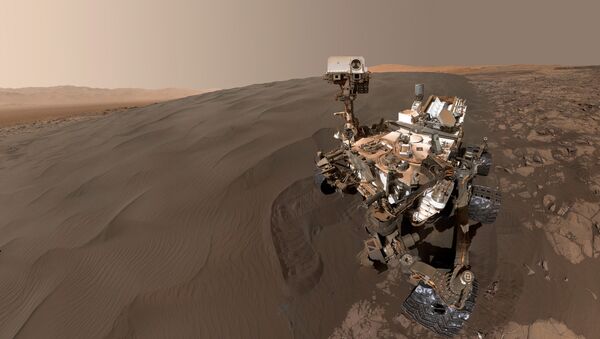A closer look at the newly found angular, stick-shaped objects, led scientists to believe they could be related to crystals in the rock and even crystal molds that are typically found on Earth.
Ashwin Vasavada, the Curiosity project scientist, reported that the features in the images are truly minute and only a millimeter or two (0.04 to 0.08 inches) in width, with the longest one stretching to barely 5 millimeters (0.2 inches).
First captured in black and white, the objects were later filmed in color, raising discussions about their possible origin. Scientists concluded that the most plausible origin is mineral, though they did not fully dismiss the trace fossil option, saying, though, they were not going to jump at the very first interpretations.
READ MORE: Prehistory Lost: Vandals Destroy Dinosaur Footprint in Australian Park
Pascal Lee, a planetary scientist at the Mars Institute and SETI (Search for Extraterrestrial Intelligence) Institute in Mountain View, California said: "The Curiosity images really pique our curiosity."
He added he had first thought it was all about bioturbation, which is the process through which organisms living in sediments can disturb their structure.


